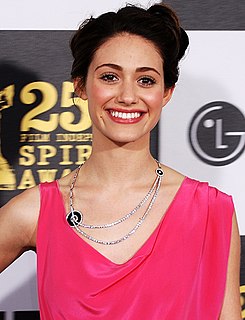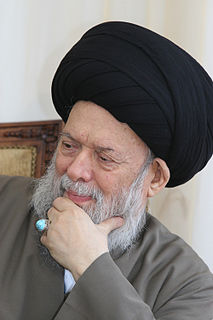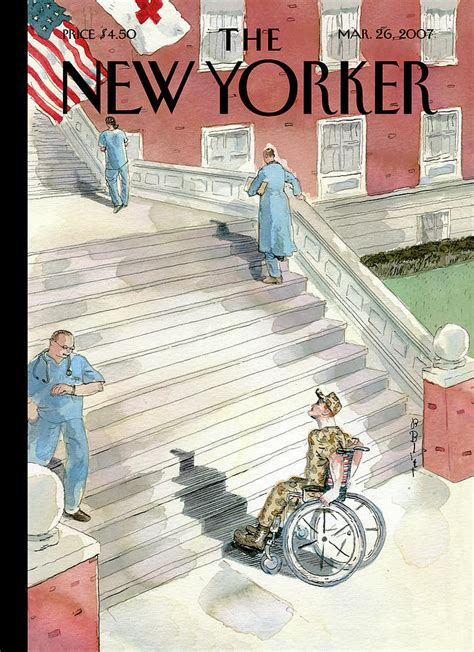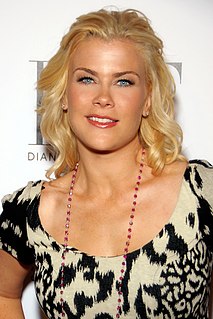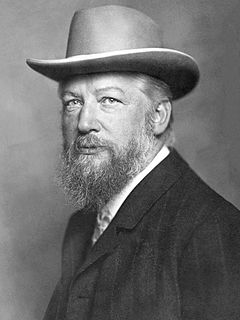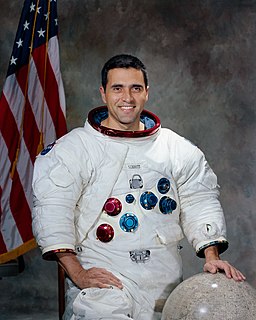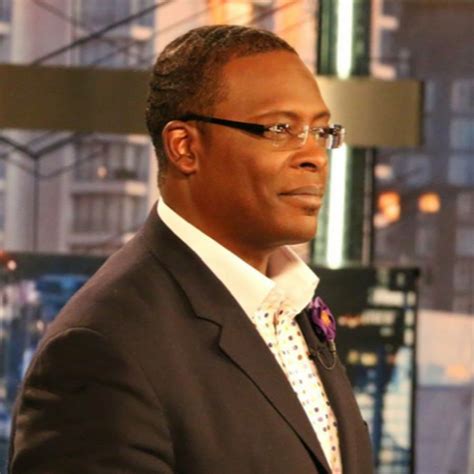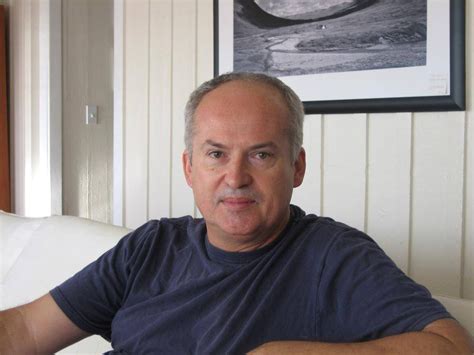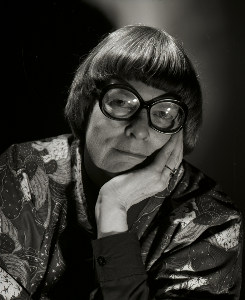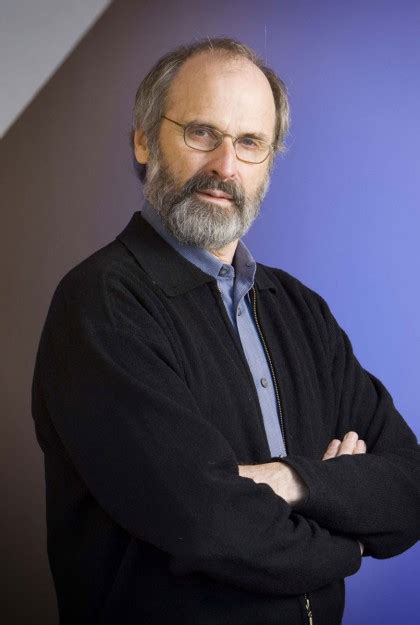Top 1200 Realistic Quotes & Sayings - Page 20
Explore popular Realistic quotes.
Last updated on April 20, 2025.
Once, when I was younger, I thought I could be someone else. I'd move to Casablanca, open a bar, and I'd meet Ingrid Bergman. Or more realistically - whether actually more realistic or not - I'd tune in on a better life, something more suited to my true self. Toward that end, I had to undergo training. I read The Greening of America, and I saw Easy Rider three times. But like a boat with a twisted rudder, I kept coming back to the same place. I wasn't anywhere. I was myself, waiting on the shore for me to return.
That’s what the human brain is there for—to turn the chaos of given experience into a set of manageable symbols. Sometimes the symbols correspond fairly closely to some of the aspects of the external reality behind our experience; then you have science and common sense. Sometimes, on the contrary, the symbols have almost no connection with external reality; then you have paranoia and delirium. More often there’s a mixture, part realistic and part fantastic; that’s religion.
Black and Third World people are expected to educate white people as to our humanity. Women are expected to educate men. Lesbians and gay men are expected to educate the heterosexual world. The oppressors maintain their position and evade their responsibility for their own actions. There is a constant drain of energy which might be better used in redefining ourselves and devising realistic scenarios for altering the present and constructing the future.
We kind of just got more mature and more realistic with what we're doing. We kinda said, "We quit our jobs and we quit college to do this, and we're going to be playing these songs every day just about, y'know, on a stage... so let's write songs that we're never gonna get sick of playing." Songs that aren't just gonna follow a trend of what's going on right now, y'know?
While greenies and their media flunkies continue to savage the gasoline-powered internal-combustion engine and rhapsodize about hybrids, hydrogen, electrics, natural gas, propane, nuclear, and God-knows-what-other panaceas, perhaps including bovine urine, there are no realistic, economically viable alternatives. None. Zero. Like it or not, as long as we remain dependent on the private automobile for transportation (roughly 80 percent of all movement in the nation is by car), we are harnessed to the IC gas engine.
The sadistic person is as dependent on the submissive person as the latter is on the former; neither can live without the other. The difference is only that the sadistic person commands, exploits, hurts, humiliates, and that the masochistic person is commanded, exploited, hurt, humiliated. This is a considerable difference in a realistic sense; in a deeper emotional sense, the difference is not so great as that which they both have in common: fusion without integrity .
Theater is such a different ballgame than film. And that's really why I stayed in film, because I really love the reality of connecting with your own feelings, and really putting that across in a realistic way. In film, the smallest muscular movements in your face, that are produced just by sheer feelings, you're not controlling them in anyway, can be seen by people in the audience because your face is sometimes, frighteningly, 40 feet wide!
Throughout my life, I have always supported the human being in his humanism and I have supported the oppressed. I think it is the person's right to live his freedom and it is her and his right to face the injustice imposed on each by revolting against it, using his practical, realistic and available means to end the oppressor's injustice toward him, whether it is an individual, a community, a nation, or a state; whether male or female.
Well, I think the most realistic ways to keep them [Saddam Hussien & Slobadon Milisevic] isolated in the world of public opinion and to work with our alliance is to keep them isolated. I'm just as frustrated as many Americans are that Saddam Hussein still lives. I think we ought to keep the pressure on him. I will tell you this: If we catch him developing weapons of mass destruction in any way, shape or form, I'll deal with that in a way that he won't like.
I've always been someone that sets achievable short-term goals. I've never been someone that's had a five-year plan, or a three-year plan. That just seems to lead to a lot of disappointment, and doesn't give you the chance to be flexible. So I've just always been someone that's sort of reassessed where I'm at, and set goals that are realistic. And luckily, I've had plenty of chances to recalibrate and adjust, and good fortune's come my way.
I don't really have a realistic life. Anyway, I am a schizophrenic so there two persons in me. Because I am the person I put on for the public and the person that I am really . . . deep inside me. So I have to cover it all up with . . . glamour and all that bullshit . . . make-up . . . glamour, dresses, color, etc., etc. . . . trying to hide a very . . . fragile person, really . . . very vulnerable to attack.
I've been doing lot of work, and hopefully will bring it to fruition in a way people can see it, really understanding - this is going to sound funny, but what does government really do, how is it really funded, and what measures exist to evaluate how it does at what it does? No forecast, no policy, no prediction, just a realistic perspective on what is. Call it like a "10k for government" we've been working on with a website, with additional data.
Scholars, who pride themselves on speaking their minds, often engage in a form of self-censorship which is called "realism." To be "realistic" in dealing with a problem is to work only among the alternatives which the most powerful in society put forth. It is as if we are all confined to a, b, c, or d in the multiple choice test, when we know there is another possible answer. American society, although it has more freedom of expression than most societies in the world, thus sets limits beyond which respectable people are not supposed to think or speak.
The magazine business is dying. It's a hard time for publishing. It does seem that everyone is much more opinionated now. I think there's probably more room for making opinionated illustrations. There was a time when Time magazine and Newsweek would have a realistic painted cover. A friend of mine used to do a lot of those paintings and he was told by the art director at one point, we are switching to photography. It seems that if someone saw a painting on a cover, it took a while to do, it must be old news. Photography became more immediate.
I want good science, and I want it to be realistically marketed. I wouldn't like only two countries on the planet that allow pharmaceutical companies to market directly to people, New Zealand and the United States. It ought to be better regulated. And when it's presented to people, it ought to be presented in a way that's realistic. For example, often people will prescribe antidepressant medications, and we'll say, you have a brain disease; you'll have to be on these medications permanently. There is no biological marker for depression. It's not true that we know that it's a brain disease.
A lot of acting is working with your own psyche in order to allow yourself to be open and reveal yourself. But then of course there's a healthy part of you that says, "Well, don't do that." You know, you're going to be in front of people. You could look foolish. You could get it wrong. You could be too big or too small or not realistic or whatever those things are. People might criticize you. There's all kinds of reasons not to be open. But you do want to be open.
Since Israel would rather re-experience Masada than renounce the core Zionist objective of establishing a Jewish state, the only one-state "solution" on the horizon of realistic possibilities is an Israeli "one state" that fulfills the messianic nationalist ideal embraced by deep Zionism, likely consisting of completing the expansionist process of recent years by incorporating all or most of the West Bank, casting Gaza adrift, consolidating control over Jerusalem, and transferring as many West Bank Palestinians as possible to Jordan.
People clearly want to believe that the world is a just and fair place. It provides them a sense of control and makes them psychologically comfortable. But believing that the world is a just and fair place causes people to not do enough to take care of themselves and to be unprepared for when it isn't so nice. So, people need to understand their tendencies to see the world as just and fair and then be realistic about the actual conditions in which they find themselves.
People who think of themselves as tough-minded and realistic, among them influential political leaders and businessmen as well as go-getters and hustlers of smaller caliber, tend to take it for granted that human nature is selfish and that life is a struggle in which only the fittest may survive. According to this philosophy, the basic law by which man must live, in spite of his surface veneer of civilization, is the law of the jungle. The "fittest" are those who can bring to the struggle superior force, superior cunning, and superior ruthlessness.
One of the capabilities, which seems to be the most difficult for aspiring leaders to maste is realistic optimism. It requires one to recognize that our experience of life is largely up to us, that our situations, good or bad, are largely due to our ability on a moment-to-moment basis to capitalize on opportunity. Those that approach life as if it is largely outside of their own control, or that others are largely to blame for their circumstances, generally find growth elusive.
That the Hindus, absorbed in the ideal, lacked in realistic observation is evident from this. Take painting and sculpture. What do you see in the Hindu paintings? All sorts of grotesque and unnatural figures. What do you see in a Hindu temple? A Chaturbhanga Narayana or some such thing. But take into consideration any Italian picture or Grecian statue-what a study of nature you find in them! A gentleman for twenty years sat burning a candle in his hand, in order to paint a lady carrying a candle in her hand.
So if we can't express it or repress it, what do we do when we feel angry? The answer is to recognize the anger, but choose to respond to the situation differently. Easier said than done, right? Can you actually imagine trying to strong-arm your anger into another, more amicable feeling? It would never work. Determination alone won't work. It takes a new intelligence to understand and manage our emotions. By getting your head and heart in coherence and allowing the heart's intelligence to work for you, you can have a realistic chance of transforming your anger in a healthy way.
There's really no way to break that chain - other than winning the lottery. There's no realistic way to end generational poverty other than to actually educate people so that they can get the jobs, so that people can be self-sufficient. And to be self-sufficient around careers - not just jobs, but careers.
Set reasonable goals; not something vague and unrealistic like "I want to be super-model skinny." I always had visions of very thin actresses in my mind when I was at the gym and it seemed so unattainable that I would quit any health regimen before it even got off the ground. But when I changed my mindset to focusing on making the healthiest choices possible for myself, it was a lot more realistic, more attainable, and then the results were visible.
People tell me the Netflix series, House of Cards, is sort of like my class come to life. The movie Margin Call portrays the realities of hierarchical relationships and rivalries beautifully, and how people respond when under pressure. Gandhi and Long Walk to Freedom both have the virtue of presenting larger-than-life figures in a more realistic way, showing their flaws and contradictions - their humanity - in a way that is very helpful.
I think women assess time passage much better than men - because of their biological clocks - and they are much more realistic about measuring out time, whereas men tend to hang onto things. Women acknowledge the biology of their time, and dance through the beat of that drum...whereas men just drum.
I flicked on the light beside my bed, waiting for my breathing to slow, veins full of adrenaline from the realistic dream. A new dream, but in essence so much the same as the many others that had plagued me in the past months. No, not a dream. Surely a memory. I could still feel the heat of Jared's lips on mine. My hands reached out without my permission, searching across the rumpled sheets, looking for something they didn't find. My heart ached when they gave up, falling to the bed limp and empty.
I was researching some of the modern-day figures that The Sopranos were moulded on. So many iconic Sopranos moments. James Gandolfini and Edie Falco had an incredible scene together in the kitchen of that house that looked like it was about to explode. That was an iconic series that changed the way we did television. It is also an extremely realistic portrayal of the mafia. Much more so than The Godfather. The Godfather, one of the greatest films ever, but let's face it, a romanticized version of the mob.
It's lonely at the top. Ninety-nine percent of people in the world are convinced they are incapable of achieving great things, so they aim for the mediocre. The level of competition is thus fiercest for "realistic" goals, paradoxically making them the most time-consuming and energy consuming. It is easier to raise $10,000,000 than it is $1,000,000. It is easier to pick up the one perfect 10 in the bar than the five 8s.
I always feel that there are two choices for women. Either be totally confident about your non-size-zero body and say, 'I love what I look like and this is who I am,' or be the person who is obsessed with diet and exercise and keeping toned. What feels more realistic to me is that some days I wake up and think I love how I look. On other days I say, 'If I had real self-control, I would be 10 pounds lighter.' That contradiction is, to me, what being a girl actually feels like.
My only supporter and comrade-in-arms was Georg Helm, who had endeavored to formulate an energetic conception of science before me and had presented his results in a treatise [Die Lehre von der Energie] exhibiting great independence of thought. But we were separated by his aversion to a realistic conception of energy. Consequently, each of us considered the other only a half ally, toward whom an attitude of caution was necessary.
I find it interesting that authors of fantasy and science fiction novels are rarely asked if their books are based on their personal experiences, because all writing is based on personal experience. I may not have gone on an epic quest through a haunted forest, but the feelings in my books are often based on feelings I've had. Real-life events, in fantasy and science fiction, can take on metaphorical significance that they can't in a so-called realistic novel.
When the great religious and philosophical conceptions were alive, thinking people did not extol humility and brotherly love, justice and humanity because it was realistic to maintain such principles and odd and dangerous to deviate from them, or because these maxims were more in harmony with their supposedly free tastes than others. They held to such ideas because they saw in them elements of truth, because they connected them with the idea of logos, whether in the form of God or of a transcendental mind, or even of nature as an eternal principle.
In fantasy stories we learn to understand the differences of others, we learn compassion for those things we cannot fathom, we learn the importance of keeping our sense of wonder. The strange worlds that exist in the pages of fantastic literature teach us a tolerance of other people and places and engender an openness toward new experience. Fantasy puts the world into perspective in a way that 'realistic' literature rarely does. It is not so much an escape from the here-and-now as an expansion of each reader's horizons.
Ironically, I must admit that I have an easier time (myself) playing games that are really simple and non-realistic - like the games I grew up with in the 80's - I tend to get lost and confused when the games get too complex! But I enjoy watching people who are good at playing games. I really enjoy playing games like Guitar Hero, where you feel like you're a great musician even if you're not.
A realistic expectation also demands our acceptance that one's allotted time on earth must be limited to an allowance consistent with the continuity of our species... We die so that the world may continue to live. We have been given the miracle of life because trillions and trillions of living things have prepared the way for us and then have died-in a sense, for us. We die, in turn, so that others may live. The tragedy of a single individual becomes, in the balance of natural things, the triumph of ongoing life.
Nothing in the Constitution of the United States gives the Congress or the Executive Branch the power to attempt the task of regulating climate, as impossible as that would be under any realistic scenarios. No national security emergency exists relative to climate that would warrant increased governmental control of energy production. Today's Americans have an obligation to future Americans to elect leaders who do not believe in an omnipotent government but believe, as did the Founders, in limited government, and in the preservation of liberty and the natural rights of the people.
When my friends who were college age took a year off of school, they'd play in Weatherbox, or between high school and college. People always joined on a short-term basis and I did things one day at a time, I guess. There was never a big plan when someone was joining. They were never joining on a full-time membership basis. Since then, we just deal with it. I'd like to have a band that's a total constant, but it's probably not realistic at some point.
In Globetrotter, David Albahari explores the consciousness of emigres from the former Yugoslavia, Croatia and Serbia, showing that while abroad, many of us are even more intensely preoccupied with our histories than we were while living in Yugoslavia. His narrative structured out of realistic details and perceptions with self-conscious meditation blending history, civilization and its discontents, and personal experience reaches a density and intensity akin to Krasznahorkai's and Thomas Bernhard's. An intensely idiosyncratic narrative, enjoyable and thoughtful.
Optimism is a tonic. Pessimism is poison. Admittedly, every businessman must be realistic. He must gather facts, analyze them candidly and strive to draw logical conclusions, whether favorable or unfavorable. He must not engage in self-delusion. He must not view everything through rose-colored glasses. Granting this, the incontestable truth is that America has been built up by optimists, not by pessimists, but by men possessing courage, confidence in the nation's destiny, by men willing to adventure to shoulder risks terrifying to the timid.
America's got to look after America again. That means taking a realistic appraisal of who is actually at risk in this country, not whining feminists, or whinging Black Lives Matter activists, but gay people and women at risk from Islam. Also, so people in this country who have been treated badly, lied to and lied about. An honest appraisal of who actually needs government attention in this country. And when all of that is done, then we can think about interfering elsewhere again.
This is the case with millions of people. They talk about love, they know all the poetries about love, but they have never loved. Or even if they thought they were in love, they were never in love. That too was a 'heady' thing, it was not of the heart. People live and go on missing life. It needs courage. It needs courage to be realistic, it needs courage to move with life wherever it leads, because the paths are uncharted, there exists no map. One has to go into the unknown.
Obviously this stuff takes a bit of planning, but I've always been someone that sets achievable short-term goals. I've never been someone that's had a five-year plan, or a three-year plan. That just seems to lead to a lot of disappointment, and doesn't give you the chance to be flexible. So I've just always been someone that's sort of reassessed where I'm at, and set goals that are realistic. And luckily, I've had plenty of chances to recalibrate and adjust, and good fortune's come my way.
It was the essence of life to disbelieve in death for one's self, to act as if life would continue forever. And life had to act also as if little issues were big ones. To take a realistic attitude toward life and death meant that one lapsed into unreality. Into insanity. It was ironic that the only way to keep one's sanity was to ignore that one was in an insane world or to act as if the world were sane.
I've always felt that the writing I responded to most - the novels and stories that compelled me, that felt like they described the world I live in, with all of its subjectivity, irrationality, and paradox, were those which made free use of myths and symbols, fantastic occurences, florid metaphors, linguistic experiments, etcetera - to depict the experiences of relatively 'realistic' characters - on the level of their emotions and psychology, rather than in terms of what kinds of lives they led or what kind of events they experience.
The poor Geordies are in the process of being rebuffed by every sentient human being whose ambition in life is more than simply to pocket six million quid for having been a failure and run for the hills. They want beautiful, flowing football and tangible success, at St James' Park. Fine. I, meanwhile, want Jessica Alba and the Nobel prize for literature. I make my prospects slightly more realistic.
Jesus Tempted in the Wilderness is Adophe Monod at his best. It is a masterpiece, bringing together profound comfort, realistic understanding, practical wisdom, and heavenly glory for every believer and, in a special way, for those who are preparing for or are working directly in some ministry. By the Spirit's grace, if you digest Monod's book slowly, seriously, and prayerfully, you will make great spiritual gain as you engage in holy warfare against your own temptations and lusts. You really must read this book.
If we can get that realistic feminine morality working for us, if we can trust ourselves and so let women think and feel that an unwanted child or an oversize family is wrong -- not ethically wrong, not against the rules, but morally wrong, all wrong, wrong like a thalidomide birth, wrong like taking a wrong step that will break your neck -- if we can get feminine and human morality out from under the yoke of a dead ethic, then maybe we'll begin to get somewhere on the road that leads to survival.
Coming out, all the way out, is offered more and more as the political solution to our oppression. The argument goes that, if people could see just how many of us there are, some in very important places, the negative stereotype would vanish overnight. ...It is far more realistic to suppose that, if the tenth of the population that is gay became visible tomorrow, the panic of the majority of people would inspire repressive legislation of a sort that would shock even the pessimists among us.
In the thirties a whole school of criticism bogged down intellectually in those agitprop, social-realistic days. A play had to be progressive. A number of plays by playwrights who were thought very highly of then - they were very bad playwrights - were highly praised because their themes were intellectually and politically proper. This intellectual morass is very dangerous, it seems to me. A form of censorship.
I think everybody who really wants to change things has to allow themselves to be angry in a constructive way, and you have to fully understand the thing you're trying to change. We really need to get serious about this now; there needs to be real, effective programs. I think there needs to be a little bit more strategy involved and a little more realism, to be pragmatic and realistic, looking at the way we as women contribute to the problem. Once the second half of the population stops doing it, it's going to end.
When we look at a good deal of serious modern fiction, and particularly Southern fiction, we find this quality about it that is generally described, in a pejorative sense, as grotesque. Of course, I have found that anything that comes out of the South is going to be called grotesque by the Northern reader, unless it is grotesque, in which case it is going to be called realistic.... Whenever I'm asked why Southern writers particularly have a penchant for writing about freaks, I say it is because we are still able to recognize one.
You shouldn't be pressured into trying to be thin by the fashion industry, because they only want models that are like human mannequins. They know that if we see an outfit on a mannequin in a shop window we will love it and want to buy it whatever size we are. That's why they have size zero models - they want to sell clothes. But you have to remember that it's not practical or possible for an everyday woman to look like that. Being size zero is a career in itself so we shouldn't try and be like them. It's not realistic and it's not healthy.
The suburbs have always been like an American version of utopia and a reflection of their hopes and fears. Erika's version of American suburban utopia - which I am renaming the outer ring - is a diverse place, with affordable housing, the possibility for people to have small businesses, which is more realistic in the outer ring than in the city with its huge costs, decent public transportation and the ability to access art and cultural events. That's my dream for America.
Boys like romantic [fairy] tales; but babies like realistic tales - because they find them romantic...This proves that even nursery tales only echo an almost prenatal leap of interest and amazement. These tales say that apples were golden only to refresh the forgotten moment when we found that they were green. They make rivers run with wine only to make us remember, for one wild moment, that they run with water.
In Marxism there are some very unhelpful ideas about the need to push for a revolution that will overturn all of society. Marx gets that from Hegel, and it leads to some very bad politics, such as the hope that things must get worse because that will then turn into the antithesis and get better from there. A kind of wishful thinking then grows out of not seeing a realistic path forward.
I define Inner Space as an imaginary realm in which on the one hand the outer world of reality, and on the other the inner world of the mind meet and merge. Now, in the landscapes of the surrealist painters, for example, one sees the regions of Inner Space; and increasingly I believe that we will encounter in film and literature scenes which are neither solely realistic nor fantastic. In a sense, it will be a movement in the interzone between both spheres.
Some playwrights are obvious influences on younger writers. Arthur Miller (realistic, politically engaged dramas) and Christopher Durang (satirical dark comedies) are examples. But August stands apart, ... He has his special way of seeing things. I remember he and I were at one of those fancy benefits the Rep has. The gay men's chorus was singing, and I was very proud to have brought them into a Rep event. And August says, 'You know, I don't see any black people up there.' That was his focus the lives of black people.
The woman's bill of rights is, unhappily, long overdue. It should have run along with the rights of man in the eighteenth century. Its drag as to time of official proclamation is a drag as to social vision. And even if equal rights were now written into the law of our land, it would be so inadequate today as a means to food, clothing and shelter for woman at large that what they would still be enjoying would be equality in disaster rather than in realistic privilege.
Magical, yes, but THE SNOW CHILD is also satisfyingly realistic in its depiction of 1920s homestead-era Alaska and the people who settled there, including an older couple bound together by resilient love. Eowyn Ivey's poignant debut novel grabbed me from the very first pages and made me wish we had more genre-defying Alaska novels like this one. Inspired by a fairy tale, it nonetheless contains more depth and truth than so many books set in this land of extremes.






